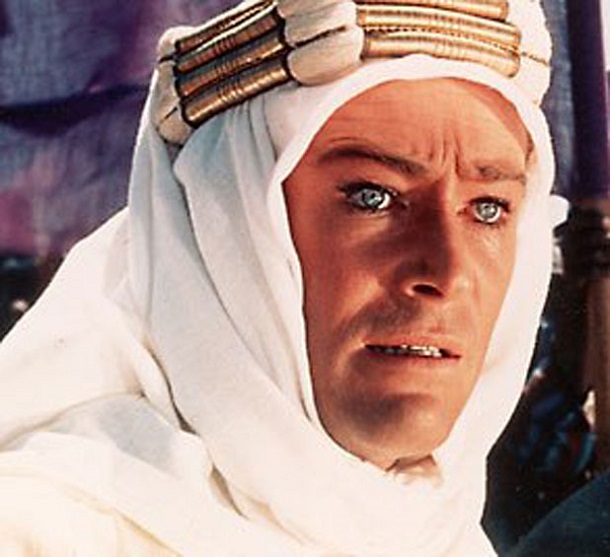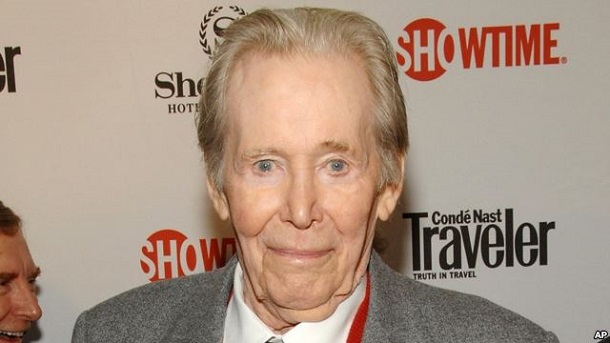 Fantastic Oscar-winning actor Peter O ‘Toole died at age 81, He will be remembered for movies Lawrence of Arabia and The Last Emperor.
Fantastic Oscar-winning actor Peter O ‘Toole died at age 81, He will be remembered for movies Lawrence of Arabia and The Last Emperor.
The Oscar winning British actor Peter O’Toole, who found stardom in David Lean’s masterpiece Lawrence of Arabia, has died aged 81, his agent has said.
The acclaimed leading man who overcame stomach cancer in the 1970s passed away on Saturday at the Wellington hospital in London following a long illness, Steve Kenis said.
O’Toole announced last year he was stopping acting saying: “I bid the profession a dry-eyed and profoundly grateful farewell.”
He said his career on stage and screen fulfilled him emotionally and financially, bringing him together “with fine people, good companions with whom I’ve shared the inevitable lot of all actors: flops and hits.”
Early in his career O’Toole became emblematic of a new breed of hard-drinking Hollywood hellraiser.
“We heralded the ’60s,” he once said. “Me, [Richard] Burton, Richard Harris; we did in public what everyone else did in private then, and does for show now. We drank in public, we knew about pot.”
Last month it was reported he had been coaxed out of retirement to act in a film about ancient Rome called Katherine of Alexandria in which he would play Cornelius Gallus, a palace orator.
O’Toole is believed to have been born in Connemara in County Galway in Ireland, and lived in London. He shot to stardom in the 1962 film of TE Lawrence’s life story and went on to star in Goodbye Mr Chips, The Ruling Class, The Stunt Man and My Favourite Year. He received an honorary Oscar in 2003 after receiving eight nominations and no wins – an unassailed record.
He is survived by his two daughters, Pat and Kate O’Toole, from his marriage to actress Siân Phillips, and his son, Lorcan O’Toole, by Karen Brown.
Peter O’Toole Dead:Biography of Peter O’ Toole
Born in Ireland in 1932, Peter O’Toole is one of Hollywood’s most highly regarded actors. O’Toole’s rise to stardom began in 1962, when he played T.E. Lawrence in Lawrence of Arabia. He went on to appear in such critically heralded films as Becket (1964) and The Lion in Winter (1968), with Richard Burton and Katharine Hepburn,
respectively. Later successes include My Favorite Year (1982) and Venus (2006). O’Toole announced his retirement from acting in 2012.
Born on August 2, 1932, in Connemara, County Galway, Ireland, legendary actor Peter Seamus O’Toole grew up in Leeds, England. There, his father, Patrick, often worked as a bookmaker. As O’Toole told writer Gay Talese in an interview published in Esquire, “When my father would come home from the track after a good day, the whole room would light up; it was fairyland. But when he lost, it was black. In our house, it was always a wake … or a wedding.”
In his early teens, O’Toole left school and ended up working for the Yorkshire Evening Post. He held several positions at the newspaper before deciding against a life in journalism. “I soon found out that, rather than chronicling events, I wanted to be the event,” he said, according to Robert Sellers’s book Hellraisers: The Life and Times of Burton, Harris, O’Toole & Reed.
After completing his national service in the Royal Navy, Peter O’Toole won a place at the famed Royal Academy of Dramatic Art. His classmates there included Albert Finney and Alan Bates. O’Toole began his career on the stage with the Bristol Old Vic theater. Before long, he established himself as a gifted actor. O’Toole was especially known for his portrayal of the title character in William Shakespeare’s Hamlet.
O’Toole made it to the big screen in 1960, playing small roles in the films The Savage Innocents, Kidnapped and The Day They Robbed the Bank of England. Soon after, the actor signed on for one of the most significant parts of his career: He was hired by director Sir David Lean to play the title character in the drama Lawrence of Arabia (1962). Making this critically praised project proved to be a physically and emotionally grueling process, as it took two years to film and was shot in seven different countries. But O’Toole’s hard work paid off: He was nominated for an Academy Award (best actor) for his portrayal of T.E. Lawrence in the film. Though he didn’t win this honor, the movie took home the Oscar for best picture.
With the success of Lawrence of Arabia, O’Toole became an international film star. He picked up his second Oscar nomination for his turn as King Henry II in Becket (1964), in which Richard Burton played the title role. The following year, O’Toole demonstrated his range as an actor with leading roles in Lord Jim, a drama based on the novel of the same name by Joseph Conrad, and the Woody Allen comedy What’s New Pussycat?.
In 1968, O’Toole gave a stellar performance opposite Katharine Hepburn in the English historical drama Lion in Winter. He once again played England’s King Henry II in this movie, which earned him another Oscar nod. The following year, O’Toole landed the lead role in a more contemporary yet equally acclaimed film, Goodbye, Mr. Chips,
playing a shy teacher who becomes smitten with a showgirl. O’Toole continued to show that he was clearly capable of great transformations on screen with 1972’s The Ruling Class, in which he stars as a mentally disturbed English aristocrat who believes that he is Jesus Christ.
In addition to being known as a great actor, O’Toole established a reputation for his heavy drinking around this time. His substance abuse caught up with him in 1975, landing him in the hospital, and he subsequently underwent surgery for what doctors called an abdominal irregularity. The 43-year-old actor nearly died. Soon after, O’Toole decided to put end to his drinking, stating, “The time has come to stop roaming. The pirate ship has berthed. I can still make whoopee, but now I do it sober,” according to the Daily Mail.
Before this incident, O’Toole’s career had been a downward spiral. He continued to make some poor choices over the next few years, especially the gory and explicit Roman era flop Caligula. After some delay, the film was finally released in 1980 to scathing reviews.
O’Toole managed to overcome his personal challenges to return to top form as an actor. He starred in another Oscar-nominated role, as an egomaniacal director in The Stunt Man (1980), and again won raves for his portrayal of a beloved and wild film star in My Favorite Year (1982).
Continuing to work steadily over the next two decades, O’Toole won an Emmy Award in 1999 for his work on the television miniseries Joan of Arc. He also received an honorary Oscar in 2002 for his “remarkable talents [that] have provided cinema history with some of its most memorable characters.”
In 2006, O’Toole received his eighth Oscar nomination for his performance in Venus. He plays a mature actor who develops a platonic relationship with a much younger woman in the film. The actor returned to the small screen in 2008, portraying Pope Paul III in The Tudors.
In 2012, however, O’Toole announced that he was retiring from acting. After more than 50 years as an actor, he released a statement saying that he had lost his desire to perform: “It is time for me to chuck in the sponge,” he said. “To retire from films and stage. The heart for it has gone out of me: it won’t come back.” The actor went on express his gratitude for his career, stating, “My professional acting life, stage and screen, has brought me public support, emotional fulfillment and material comfort. It has brought me together with fine people, good companions with whom I’ve shared the inevitable lot of all actors: flops and hits.”




